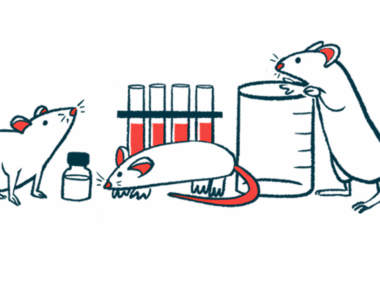Phase 2 trial of AskBio’s gene therapy assigns its first participants
Trial to enroll 87 adults, ages 45 to 75, with moderate Parkinson’s
Written by |

A Phase 2 clinical trial of AB-1005, AskBio’s gene therapy for Parkinson’s disease, has randomly assigned its first participants to different treatment groups, the company has announced.
Called REGENERATE-PD (NCT06285643), the trial is expected to enroll about 87 adults with moderate Parkinson’s, ages 45 to 75, who will be randomly assigned to receive a single dose of AB-1005 via direct brain injection, or a sham (control) surgical procedure. Recruitment is ongoing at several sites in the U.S., with sites planned to open in Germany, Poland, and the U.K.
“AskBio continues to mark significant milestones in the clinical development of the investigational gene therapy AB-1005 as we strive to bring a safe and effective gene therapy to patients with moderate stage Parkinson’s disease,” Canwen Jiang, MD, PhD, chief development officer and chief medical officer at AskBio, said in a press release. “With REGENERATE-PD participants now being randomized, we are excited by our progress with AB-1005 and look forward to sharing further updates at an appropriate scientific forum as the program advances through next year and beyond.”
Parkinson’s is caused by the dysfunction and eventual loss of dopaminergic neurons, which are nerve cells responsible for producing dopamine, a neurotransmitter essential for controlling voluntary movements. Impaired dopamine signaling ultimately leads to the disease’s motor symptoms.
GDNF, short for “glial cell line-derived neurotrophic factor,” is a signaling protein that plays a critical role in supporting the growth, survival, and function of dopaminergic neurons.
AB-1005 delivered to brain via MRI-guided neurosurgical injection
AB-1005, formerly known as AAV2-GDNF, is an investigational gene therapy that uses adeno-associated virus 2 (AAV2) to deliver the GDNF gene directly to both sides of the putamen — a brain region involved in motor control — through an MRI-guided neurosurgical injection.
The brain cells will then use the delivered gene to produce the GDNF protein which is expected to ease Parkinson’s motor symptoms.
The treatment was shown to ease motor symptoms in people with moderate Parkinson’s and stabilize disease progression in those with mild disease in a Phase 1 clinical trial (NCT04167540). It was also generally safe and well tolerated, with no serious safety issues related to the gene therapy reported.
The company also demonstrated that after 36 months (about three years), patients with moderate disease had a trend toward improvement or stabilization of motor function, as assessed using the Movement Disorder Society-Unified Parkinson’s Disease Rating Scale part 3 and patient diaries, and a reduction in their daily dose of levodopa, the mainstay treatment for Parkinson’s.
The REGENERATE-PD trial’s main goal is to assess changes in motor fluctuations over 18 months, based on patient diaries of their motor symptoms.
“There is a significant need for neurorestorative therapies in Parkinson’s and seeing the advancement of an important investigational gene therapy in a Phase II clinical trial gives hope to patients and the medical community,” said Rajesh Pahwa, MD, director of the Parkinson’s Disease and Movement Disorder Center at the University of Kansas, and REGENERATE-PD’s principal investigator.
The therapy’s safety and efficacy are also being tested for multiple system atrophy, a form of atypical parkinsonism, in a Phase 1 trial (NCT04680065), which is currently recruiting patients in the U.S.



